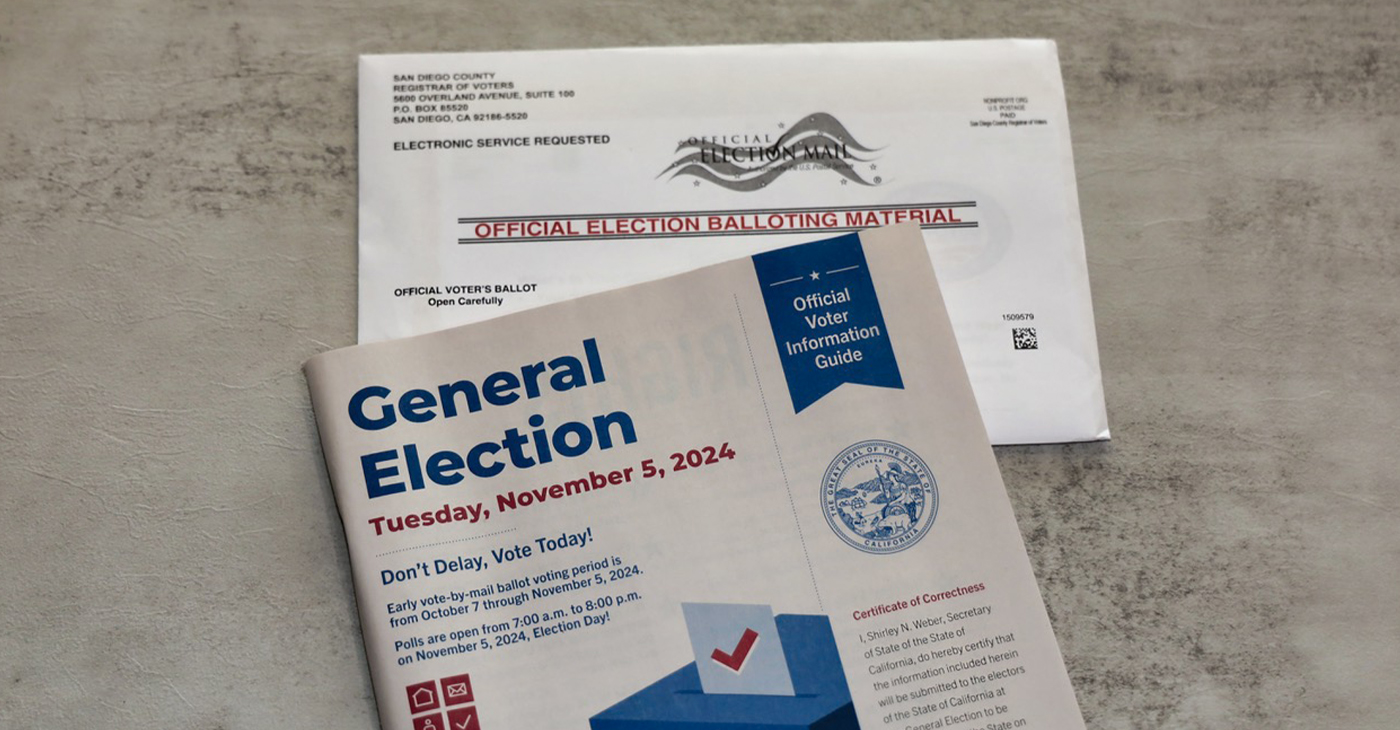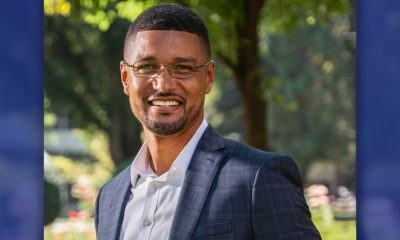California Black Media
California Launches New Homepage @ CA.gov
On Oct .4, the Governor’s office announced that the state has launched a new revamped digital portal at CA.gov where Californians have access to “hundreds of state services and programs.” “This overhaul is the latest milestone in the state’s ongoing digital strategy to improve user experience, accessibility, and service delivery for millions of Californians,” read a press release.

By Bo Tefu, California Black Media
On Oct .4, the Governor’s office announced that the state has launched a new revamped digital portal at CA.gov where Californians have access to “hundreds of state services and programs.”
“This overhaul is the latest milestone in the state’s ongoing digital strategy to improve user experience, accessibility, and service delivery for millions of Californians,” read a press release.
“A big part of the work we’re doing to build a “California for All” is rooted in how accessible our government is to the people. As part of our ongoing work to connect people to their government, today we’re introducing a new CA.gov — California’s ‘homepage’ that serves as a portal to state services and programs,” said Gov. Gavin Newsom.
State Chief Information Officer and California Technology Department Director Liana Bailey-Crimmin said, “We will continue to ensure timely and accurate government information is just a click away. Whether you’re looking for assistance with essential services or want to learn about what the Golden State is doing for climate action, new business development, or California government – this site has it.”
“Using advanced technology, the site has a greatly improved search feature, works well on mobile devices and meets modern web standards. The previous version of CA.gov was launched in 2017, and as user needs and technology evolved, the state implemented the work to revamp it,” Bailey-Crimmin added.
Activism
Oakland Post: Week of December 25 – 31, 2024
The printed Weekly Edition of the Oakland Post: Week of December 25 – 31, 2024

To enlarge your view of this issue, use the slider, magnifying glass icon or full page icon in the lower right corner of the browser window. ![]()
Activism
Living His Legacy: The Late Oscar Wright’s “Village” Vows to Inherit Activist’s Commitment to Education
Kingmakers of Oakland (KOO), a nonprofit organization that works to improve educational and life outcomes for Black boys and men, stated that “Oscar Wright is one of the most prolific, consistent, and committed advocates of equity for Black students and Black Families here in Oakland for the past six decades.”

By Antonio Ray Harvey, California Black Media
Activists mourning Oscar Carl Wright’s death, have pledged to continue his lifelong mission of advocating for Black students and families in Northern California.
Wright, 101, who passed away on Nov. 18, was involved in Oakland’s educational affairs until his death.
Now, friends and admirers acknowledge that carrying on his legacy means doubling down on the unfinished work that Wright dedicated his life, time, and resources to, according to Y’Anad Burrell, a family friend and founder of San Francisco-based Glass House Communications (GHC).
“Mr. Wright did a lot of work around equity, specifically, for Black students based on their needs — whether it was tutoring, passing classes, or graduating,” Burrell said.
Wright became a champion for his children’s education, recognizing the disparities between their school experiences and his own upbringing in the Mississippi Delta.
Burrell told California Black Media (CBM) that the crisis of unequal access to resources and a quality education continues to affect the Oakland Unified School District (OUSD).
According to Oakland Reach, in the city of Oakland, only 3 in 10 Black and Brown students are reading at or above grade level. In addition, only 1 in 10 are doing math at or above grade level.
Oakland REACH is a parent-run, parent-led organization. It aims to empowers families from the most underserved communities to demand high-quality schools for their children.
Wright’s work as an activist had impact across the state but he was primarily known in the Bay Area. Alongside the Black United Front for Educational Reform (BUFER), he filed a complaint against OUSD for violating the Civil Rights Act of 1964.
In 2000, the OUSD school board proposed an action plan to address educational inequity, but it was never implemented.
Wright later founded the African American Honor Roll Celebration at Acts Full Gospel Church, an award that recognizes Black students with a grade point average of 3.0 or better. Each year, more than 1,000 students are honored at this ceremony.
Kingmakers of Oakland (KOO), a nonprofit organization that works to improve educational and life outcomes for Black boys and men, stated that “Oscar Wright is one of the most prolific, consistent, and committed advocates of equity for Black students and Black Families here in Oakland for the past six decades.”
Burrell said that one of the main reasons Wright’s work was so essential for families and children in Oakland that is the direct relationship between acquiring a quality education and affording quality housing, maintaining food security, achieving mental wellness, and securing stable employment.
Wright was the child of sharecroppers from Coahoma County, Mississippi. He attended Alcorn State University, a Historically Black College and University (HBCU).
In the late 1950s, Wright and his family relocated to the Bay Area where he worked as a contractor and civil engineer. He later became an active member of the National Association for the Advancement of Colored People (NAACP).
Burrell said the people who will carry on Wright’s work are part of a “village” that includes KOO’s CEO Chris Chatmon. Wright was a mentor to Chatmon.
“It will not be one entity, one person, or one organization that picks up the baton because it was a village effort that worked alongside Mr. Wright for all these years,” Burrell said.
Burell says that legacy will live on.
Antonio Ray Harvey
Secretary of State Reports “Generous Turnout” in November Election
Among the statewide election statistics reported by the Secretary of State’s Office 13,034,378 vote-by-mail ballots were cast, while 3,105,666 ballots were cast at voting locations. Two days before the certification, Weber held a news briefing with media publications. During the conference, held on Zoom, Weber shared details about the process of certifying votes.

By Antonio Ray Harvey, California Black Media
On Dec. 13, California Secretary of State (SOS) Shirley N. Weber officially certified the Nov. 5 General Election results from all 58 counties.
The SOS reported that 16,140,044 (71.43% of registered voters) ballots were cast in this past election. The total number of votes this year was down from the Nov. 3, 2020 vote count which was 17,785,151 or 80.67% –by nearly nine percentage points (according to Weber’s “Statement of Vote: General Election Nov. 5, 2024” report.
Among the statewide election statistics reported by the Secretary of State’s Office 13,034,378 vote-by-mail ballots were cast, while 3,105,666 ballots were cast at voting locations.
Two days before the certification, Weber held a news briefing with media publications. During the conference, held on Zoom, Weber shared details about the process of certifying votes.
Weber said, although there were minor issues and “glitches,” overall the election process in the state ran accordingly.
“There were instances and things that happened, but they did not stop the election. We did not have people lose confidence and not go to the polls to vote,” Weber said.
“There were minor glitches that took place, but we addressed each one of them and nothing seemed to linger in regard to people who wanted to vote and participate in the process which was evident by the generous turnout that we had,” said Weber.
The Public Policy Institute of California reported on Nov. 18 that the decline in votes is notable because there were more registered voters in 2024 than in 2020. PPIC estimated that 1.7 million fewer ballots were cast in 2024, despite having 550,000 more registered voters and 1.8 million more eligible residents than in 2020.
Weber acknowledged the decrease in voter participation compared to the November 2020 election, but she said California’s voters’ registration was higher than the rest of the country.
“Nationally, the 2024 registrations are at 63%. So, we are higher (at 70%) than the national average,” Weber said. “Despite what people might say, we are still in the lead regarding voter turnout, participation, and registration with the largest population in the United States.”
-

 Activism4 weeks ago
Activism4 weeks agoOakland Post: Week of November 27 – December 3, 2024
-

 Activism2 weeks ago
Activism2 weeks agoButler, Lee Celebrate Passage of Bill to Honor Congresswoman Shirley Chisholm with Congressional Gold Medal
-

 Activism2 weeks ago
Activism2 weeks agoPost News Group to Host Second Town Hall on Racism, Hate Crimes
-

 Activism2 weeks ago
Activism2 weeks agoDelta Sigma Theta Alumnae Chapters Host World AIDS Day Event
-

 Business2 weeks ago
Business2 weeks agoLandlords Are Using AI to Raise Rents — And California Cities Are Leading the Pushback
-

 Activism3 weeks ago
Activism3 weeks agoOakland Post: Week of December 4 – 10, 2024
-

 Arts and Culture1 week ago
Arts and Culture1 week agoPromise Marks Performs Songs of Etta James in One-Woman Show, “A Sunday Kind of Love” at the Black Repertory Theater in Berkeley
-

 Activism2 weeks ago
Activism2 weeks agoOakland Post: Week of December 11 – 17, 2024























































